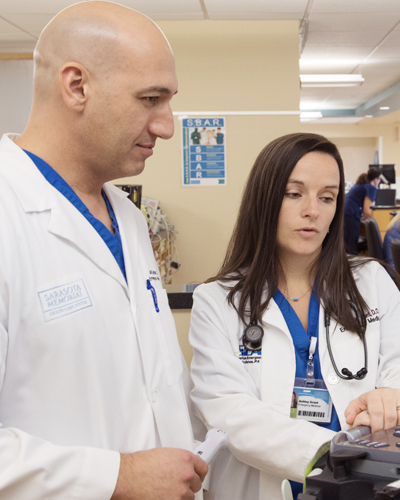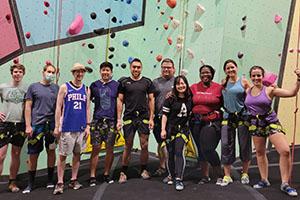Wellness

Your well-being is our priority.
The Office of Graduate Medical Education is committed to ensuring that all of our residents, fellows and faculty remain academically, physically, and psychologically healthy. For residents and fellows, training can be an inherently stressful time, and it is important to take care of yourself so that you can get the most out of your educational experience.
The Wellness Program seeks to provide a variety of services to increase clinician wellness and reduce burnout and distress, thereby facilitating a strong and thriving workforce. Many medical professionals experience stress under the unique demands of working in an academic medical environment. Sometimes, we can be resilient in the face of severe stress, but at other times are can become overwhelmed and may benefit from additional support. We are here to help you address any problems or concerns, personal or professional.
There are several avenues to receive the assistance and resources needed to maintain and also improve overall well-being:
- Hotlines
- Self-Study Resources
- Employee Assistance Program
- Open Door Policy to speak with GME Administration
- ACGME Tool Box
- Mayo Well-Being Index
National Suicide Prevention Lifeline
CALL 988

Employee Assistance Program (EAP)
Each facility has an Employee Assistance Program (EAP). These programs are confidential and available to all residents and fellows. Contact your program office for detailed information related to the EAP services offered in your facility.

GME Office
The GME Office maintains an 'open door' policy for any resident, fellow or faculty. Residents/Fellows should first contact their respective program for assistance. If further assistance is needed, please contact the FSU College of Medicine Office of GME.

Self-Assessment Resources
Keeping tabs on your own psychological well-being is a crucial part of maintaining overall health and successfully working towards your goals, both personally and professionally. Psychological well-being is complex and fluid, and it can even shift from week to week, based on a variety of factors such as your physical health, work hours, rotation or stress level, so it's imperative to 'check-in' with yourself on a regular basis.
Self-assessment surveys allow residents/fellows to maintain an awareness of their well-being and empowering them to address any areas of concern early on. Residents/fellows are encouraged to periodically complete self-assessments, e.g., Mayo Well-Being Index, to determine how well they are caring for themselves.
SELF-ASSESSMENT SURVEYS
NOTE: The self-assessments are not a substitute for professional services.
General Well-Being
Emotional Intelligence, Mindfulness, and Self-Compassion
Eating Disorders
Physical Fitness
ACGME Tool Box
The ACGME's Physician Well-Being initiative has expanded in recent years within the work of the organization and through partnerships in the medical community, with the ultimate goal of reducing burnout and helping physicians re-discover joy and meaning in work.
The ACGME recently launched AWARE, a suite of resources specifically designed for the GME community to promote well-being, mitigate the effects of stress and prevent burnout. These include a variety of on-demand tools, such as a video skill-building workshop, podcasts, and an app.
Additional tools, resources, preventative practices and articles concerning anxiety, physician burnout, depression, self-compassion, stress and work/life balance can be found on the ACGME wellness page.
FSU GME Concern Card
This tool provides residents and fellows with a confidential and anonymous way to share concerns directly with the FSU GME Central Office leadership. If follow-up is desired, individuals may choose to include their contact information within the form.
Every concern matters – and every voice helps improve our learning environment.






